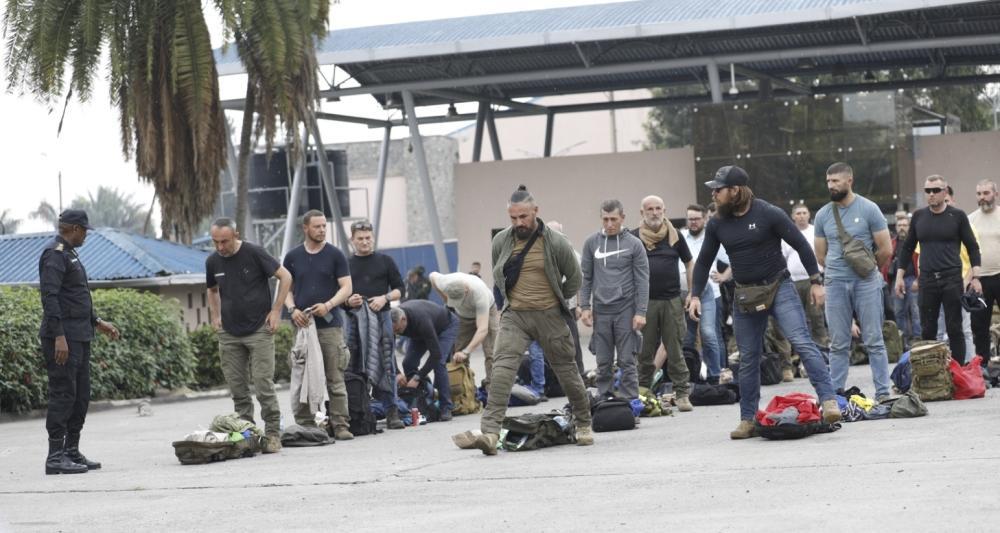Shyaka Kanuma
Africa-Press – Rwanda. Thirty plus one years of liberation feels so good!
We can start with the good things that we all know about liberation: a Rwanda that’s home to all Rwandans; a nation liberated from the politics of ethnic hate, saved from institutionalised segregation of entire sections of the population; a Rwanda where an entire generation has been born and grown up never knowing what it means to be a refugee, or to live under the menace of violent, tribalist regimes; a Rwanda where fear of your neighbor now is a thing of the past.
It’s impossible to enumerate all the great things liberation has brought to us, not least the bright present and the optimism for a bright future that any stranger will recognize the moment they set foot in Rwanda.
I know, we too have problems as a society, many in fact. We have problems such as people, the youth, finding it hard to get jobs. We have isses of rising costs of living (due to external factors like conflicts in faraway lands that nevertheless affect everyone else, oil-producing states jacking up crude prices), and others.
It isn’t only Rwanda that has problems however. Even the wealthiest, most powerful countries have their own difficulties to deal with. Problems and challenges will never end. Societies can only keep tackling them, and overcoming them as they emerge.
Like Rwanda did. One of its government’s most important undertakings since liberation has been to create all the requisites for a hopeful, optimistic society imbued with a firm belief in a better future.
One need not belabor the results; they speak for themselves. Suffice to say, as a society we are a far cry from what it was in the July of 1994, when the country was written off, totally, in the community of nations.
The unanimous expectation – by everyone other than the Rwandans that had participated in their own liberation, that is – was that as a country we were destined to be a basket case, into the foreseeable future. Matters have turned out very differently, to the astonishment of many.
But there are some who are determined to take us back to the bad old days. There are those who wish, whenever they look at what this country has done for itself, to incite violent political upheaval, their desire being to reduce us to their levels of chaos.
We can start with the biggest agent of chaos of all over the past half decade. DR Congo’s President Felix Tshisekedi.
This man has proven an utter failure at governance. He however, together with his cabal in Kinshasa, composed mainly of his former pals from the rundown neighborhood of Brussels’ Matonge (its name indicates clearly who its majority inhabitants are) have proven quite adept at
looting their countrymen and women blind. To do so with impunity, they hit on the idea of blaming Rwanda for everything; every problem of their country.
If Congolese demanded accountability and asked why there was no electricity; no clean water in their neighborhood; why the roads are in a dilapidated state, the Kinshasa cabal would have a ready scapegoat: Rwanda. They would, and did accuse Rwanda of “stealing their resources”, never mind that could furnish neither proof nor evidence of this.
They actually started believing their own lies. They went full in on their anti-Rwanda propaganda, deluding themselves into thinking Kigali is their enemy (though somewhere deep in their psyche, I am convinced, they know they are their own worst enemy).
They then actively started plotting armed conflict against Rwanda, incorporating into their military the genocidal FDLR; a group born of the very people that perpetrated the 94 Genocide against the Tutsi in Rwanda, and fled across the border into the then Zaire when the RPF routed them.
The ex-FAR and Interahamwe eventually became FDLR, and were empowered to continue their self-appointed mission of persecuting and killing anyone of Tutsi ethnicity, this time their victims eastern Congo’s herder, pastoralist communities.
These are the people that Felix Tshisekedi decided to integrate in his military, FARDC, even as Rwanda repeatedly warned against that. Tshisekedi of course had these delusions of grandeur, whereby he would “rid Rwanda of the Kagame administration”, while he himself targeted the his country’s Tutsis in ethnic cleansing campaigns.
In this he formed an alliance with Burundi. Tshisekedi, and his Burundian ally, and their FDLR proxy were bent not only on genocide of Congo’s Kinyarwanda-speaking communities. Destabilizing Rwanda (and installing an FDLR government in Kigali) was their ultimate goal.
It’s a truly sad commentary on the state of Africa that these morally bankrupt individuals even secured the support of some SADC-bloc countries (not mentioning an outfit of European mercenaries) in their aims.
But if they didn’t know what a country like Rwanda is all about, by now they’ve been given a sample, a dose, in the form of the thorough beating they’ve received in DR Congo.
Neither Tshisekedi, nor his Burundian pal, nor their FDLR proxy, together with whoever else they can fool into joining them, can ever undo the liberation of Rwanda.
Source: The New Times
For More News And Analysis About Rwanda Follow Africa-Press






